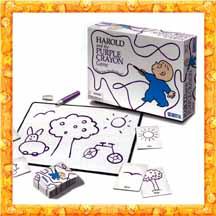As usual,
Maureen's got another angle on things with her discussion of
War of the Worlds. You should go read
her summary (especially if you're from the Garden State), but I'll hit a couple key points for you:
- War of the Worlds isn't about War. Or The World.
- Don't mix death rays and Martians with Tuesdays and Morrie.
- Science fiction is fiction based in science.
The last bullet derives from her Writing Prompt: "Write a little sci-fi story that has to do with some scientific fact that you know. (I learn most of my chemistry from the Food Network.) Make the science the solution to or center of the story. War of the Worlds? CSI? MacGuyver?"
This straightforward prompt gets at a huge point. I think it was the great Robert Heinlein who said (paraphrasing) he didn't like the phrase "science fiction"; he preferred "speculative fiction" because he was merely looking forward to futures that were entirely possible and writing about them. Bingo.
A great deal of science fiction simply isn't. I'm an original Star Trek fan, but very, very little of that original series was science fiction. Gene Roddenberry didn't even consider it SF; he called it "Wagon Train to the stars". Here's how you can tell: If the technology is integral to the story, and the story cannot exist without the techology, you've got science fiction. You could also apply a rule that you must change/enhance/eliminate one of the laws of our universe, thereby creating a different one. I think I've talked about this before.
But this new angle creates what I think is an extraordinarily useful question set for evaluating your own work:
- What am I trying to create? (narrative poems? speculative short stories? romance novellas?)
- What structures and styles defines what I am trying to create? (rhyme? use of dialogue? pages of exposition?)
- What have I included in my work that fits that definition (form? bug-eyed monsters? Prince Phillip's sweat-moistened pectorals?)
- What have I added that is different, special, and interesting to that definition? (??????)
This gets back to having to have a definition of poetry, but I'll hold off on rehashing that for a while....

